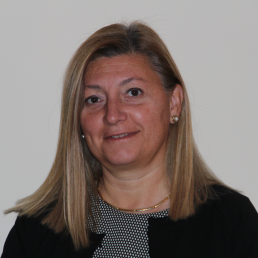What impact does shopping, travelling and living in a high-density neighbourhood rather than a rural area have on the environment and communities around the world?
With customers’ attitudes, behaviours and purchasing patterns rapidly evolving, more people are asking this question.
Consumers are becoming more conscious of the impact that their life choices have on society, and expect companies to align with their values. Enterprises are under increasing scrutiny — and not just from socially conscious consumers. Pressure comes from regulators, investors and public sector procurement officers, who are looking for partners to help them achieve net-zero and social value targets.
Historically, environmental and social goals have been at odds with financial and operational performance. Not anymore. Promoting net-zero emissions, diversity and inclusion, a circular economy and so forth go hand in hand with long-term financial and operational excellence.
Chief executives across industries are taking note. ENEL CEO Francesco Starace, who is leading the company on an aggressive path towards renewable energy, said it is doing it not only because it’s the right thing for the environment, but also “because it’s cheaper, less expensive and more predictable.”
Data is now a crucial tool being deployed by high-performing enterprises to design, execute and monitor strategies that bring together social and environmental purpose with financial and operational excellence.
Social Value and Financial Performance: Two Sides of the Same Coin
Private companies and public sector institutions must turn data into insights that empower them to deliver environmental and social value, which will then translate into long-term organisational success (in terms of brand, talent retention, operational efficiency, revenue growth, etc.). Examples are flourishing across industries:
- Transportation and logistics companies such as UPS are using dynamic route optimising tools underpinned by data analytics and AI that help their drivers save time, reduce last-mile delivery costs and cut their carbon footprint. The tool reportedly saves UPS 10 million gallons of fuel and 100,000 metric tons of carbon footprint annually — the equivalent of removing more than 20,000 cars from the roads.
- H&M is a fitting example of the retail industry’s attention to environmental and social responsibility. Initiatives include experimenting with innovative business models including rentals, subscriptions and re-commerce, improving the transparency of third-party retailers’ sourcing operations through supply chain-as-a-service models, raising awareness of the importance of the circular economy through apparel recycling machines in physical stores, and supporting communities in sourcing countries through initiatives aimed at enhancing female garment workers’ skills and livelihoods.
- Overwhelmed by the sudden influx of Ukrainian refugees, many healthcare providers in Poland thought creatively of how to use data to scale services efficiently, while ensuring social inclusion. For instance, the Damian Medical Centre used remote diagnostic devices at refugee reception points. Data was analysed by doctors in their office and recommendations were provided to the paramedics at the reception desk to take care of the patients.
- In utilities, Iberdrola monitors and operates renewable generation facilities from a single dispatch facility called CORE. In its four centres — in Toledo (Spain), Portland (US), Glasgow (UK) and Río de Janeiro (Brazil) — the company collects more than 5 million signals from 11,000 wind turbines. By comparing real-time data to the digital twin of each turbine, it can predict future turbine failures, significantly reducing cost and improving reliability of wind and its contribution to the energy mix.
- Swedbank has developed a real-estate flood risk dashboard to improve collateral management for real-estate lending. The dashboard builds on publicly available data such as public flood maps, flood overflow and distances to water areas to analyse different scenarios for flood events. The model predicts expected annual losses and the financial impact of floods, bringing together the return expected from financial institutions and improved environmental resilience.
- Lindström, one of the leading textile service companies in Europe, partnered with Ecolab to implement a new industrial process in its Luumäki plant. The new washing solution was designed to improve performance in terms of the cleanliness of industrial workwear, reduced energy and water consumption, and improved longevity of reflective stripes. With the programme, Lindström has created additional value for its customers while providing workwear that is more wear-resistant and generates less waste in comparison to conventional washing programmes.
Scaling Data-Driven, Purpose-Led Industries and Enterprises
Notwithstanding these forward-thinking initiatives and senior executive visions, these practices are not yet the norm.
According to IDC EMEA’s Future Enterprise Resilience Survey (January 2022), 25% of enterprises across Europe say collecting data spread across the organisation is the biggest challenge to achieving their organisation’s sustainability goals.
Take carbon-accounting practices for instance. Data is often spread across multiple spreadsheets, while processing is done using inconsistent emission databases, and decision-supporting reports and dashboards for management are missing.
In addition, organisations still fail to see the value in investing in sustainability measures or solutions. One reason is that most of them have adopted a much narrower definition of sustainability, often reducing it to mean environmental sustainability alone.
In contrast, the UN’s Sustainable Development Goals (SDGs) are based on five holistic pillars: people, planet, prosperity, peace and partnership. According to ENEL’s Francesco Starace, “The sustainability word is used mostly with an environmental flavour, but the truth is that for us sustainability is what is needed in order for the proper evolution of society.”
To close the gap, enterprises need to drive impact beyond environmental sustainability or greenification (or worse offsetting or greenwashing) by delivering on a more holistic “social value” view looking at environmental as well as broader societal objectives such as inclusion, talent development, economic growth, circular economy, safety and security.
Retailers, manufacturers, utilities, transportation companies, financial institutions and of course the public sector that want to respond to investor, business partner and consumer demand to bring together performance and the common good should:
- Refocus their purpose. Apply it to their product or services and to the way they are delivered. In doing so, fully leverage the power of data to simultaneously create financial and social value.
- Master data, analytics and technology. Adopt advanced analytics and cloud to strengthen data collection, analysis and reporting. Use these capabilities to measure progress against environmental, social and governance (ESG) goals.
- Collaborate with the ecosystem. Adopt technology that facilitates operational integration with partners and transparent sharing of ESG data.
- Reimagine the role of employees and consumers. Establish a feedback loop to listen to customers and update them on the progress towards ESG goals. And make your employees the strongest ESG advocates by empowering them with the right tools and training.
For more information, please contact Massimiliano Claps, or head over to https://www.idc.com/eu and drop your details in the form on the top right.




